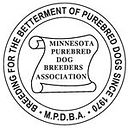All About Bostons
The Boston Terrier is one of the few truly American breeds. The Boston Terrier was developed in Boston, Massachusetts in the late 19th Century by the crossing of a Bulldog and a White English Terrier, and was first recognized by the AKC as a breed in 1893. Boston Terriers typically range between 12-25 pounds, although some may weigh up to 30 pounds.




Physical characteristics
The Boston Terrier has bulldog type short nose, naturally erect ears, a muscular body, and a short, smooth coat. Markings vary, but all Bostons have white markings with a black, seal, or brindle body – as if the dog is wearing a tuxedo. They are compactly built, well balanced and convey an expression of determination, strength, and activity.

A wonderful pet & perfect companion
The Boston Terrier makes a wonderful pet and companion. He is a watch dog, playful companion, and protector – an ideal family dog. An indoor dog, he does not like extreme heat or cold. The Boston Terrier is adaptable to the smallest home because of his size, disposition, and short coat.
Choosing your Boston Terrier
Boston Terriers should only be purchased from a reputable breeder who does the necessary genetic testing and is willing to answer all your questions.
-
Can you see the puppy’s parents?
-
Can the breeder provide a vaccination record and information about a healthy diet and housebreaking?
-
Can they provide a signed, written health guarantee contract?
-
If the puppy will be shown and/or bred, will the breeder want a co-ownership agreement?
-
If a co-owner, will they reclaim the puppy at any age if you can no longer keep it?
It is essential to establish an ongoing relationship with your breeder as he/she will be a valuable resource throughout your dog’s life. Your selection should be a puppy that is at least 8-12 weeks old, appears healthy, active, and very curious. We recommend having your new puppy examined by a veterinarian.
Boston Terrier Health Concerns
Boston Terriers are extremely vulnerable to heat prostration. Although chronic health problems are unusual, Boston's may be prone to heart or respiratory difficulties. They may be more vulnerable to injuries due to their prominent eyes. Other problems seen occasionally in the breed include brachycephalic syndrome (long soft palates, stenotic nares), luxating patella's (loose kneecaps), hemivertebrae, and cataracts. In addition, care must be exercised by veterinarians in the use of anesthesia; faster-acting isoflurane is recommended for this breed for surgical procedures. Maintained in good health, Bostons usually live 12 to 15 years, with some living longer

For a list of suggested breeders and more information about Boston Terrier health issues, contact us at mnbostonterrierclub@gmail.com, or call (612) 235-0614.



%2B1-151w.jpg)
